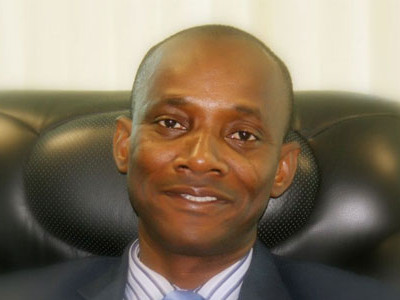
As part of efforts to boost the capacity of Nigeria’s transmission infrastructure , the Nigerian Electricity Regulatory Commission (NERC) has commenced the process of unbundling the Transmission Company of Nigeria (TCN) into two independent entities.
When the process is completed, two distinct companies, a Transmission Service Provider (TSP) and an Independent System Operator (ISO) would have been created out of the present TCN, NERC has said.
NERC Chairman, Dr. Sam Amadi, said in Abuja, yesterday that it had commissioned a team to compare what obtains in some countries, with a view to determining the best model to be adopted eventually.
He said: “We have already secured a technical paper on this and the commission has asked its internal technical committee to under comparative jurisdictional research to compare models from similar and different electricity markets across the world. After the report of the committee we will conduct public consultation to ascertain the views of other stakeholders.”
On the structure of TCN successor-companies, Amadi stressed: “Our mind is moving towards having a non-profit ISO to be jointly owned and funded by all generators and distributor in the market. This saves government from using its public sector borrowing or budget to fund expansion in transmission services. Everything will be financed by the market and there will still be no service failure. That is one of the benefits of some of NERC’s bold interventions. They are creating financial viability and service improvement with less and less of public sector financing. This is a huge relief in these days of lean revenue.”
He gave further details on the development, saying : “One of the other most formidable bottlenecks is transmission.
Don’t forget that the Federal Government recognized the fragility of transmission capacity as far back as 2001 in the National Electric Power Policy (NEPP). Again, the government also hired a management contractor to manage transmission instead of relying on public sector bureaucracy.
This is an admission of inefficiency in transmission services.
“Because transmission service is like a national highway it was considered not appropriate to fully privatize it. There is doubt if private firms will fully fund such public good if it remains a common service.
“But we are faced with a grave problem here, which is the possibility that if we succeed in growing generation , we may lack sufficient transmission capacity to deliver such power to the grid. This is why the embedded generation regulation is helpful. With it we can avoid the transmission bottleneck in connecting modular power to demand load.”
Stressing the place of NERC’s embedded regulation towards cushioning generation shortage.
Amadi said: “It is true that there is not much increase in generation capacity for the past couple of years. This has created the wrong perception of failure of the power sector reform. So, the question is why have we not grown more capacity. ?We have not been able to hit the 6,000 megawatts target largely because of the unavailability of gas supply to power plants. If there is sufficient gas to power plants we will today have more than 5,500 megawatts. This will significantly improve power supply. For one we will have roughly an average of 10 hours steady supply across many cities. But the truth is that having abundance of gas does not translate to gas supply to power plants.
“The first fact is that gas supply to power is outside the direct control of the regulator of electricity. So, we can’t predict accurately how much gas will be available.
In Multi-Year Tariff Order 1 (MYTO ) we forecasted that we would have enough gas to do about 9,000 megawatts. This was in 1998. This forecast failed because gas could not be delivered. We became wiser and began to benchmark the MYTO on more conservative, almost pessimistic projection of capacity growth.
We expected to end 2014 at above 5,000 megawatts. But still our expectation on gas supply did not materialize.”
On how NERC was responding to the challenges associated with gas to power, he said:
“We are actively responding to these problems with regulatory tools. Take for example the problem of commercial incentive for gas supply. We have responded by allowing $2.50 as cost of gas and $0.80 as transport cost for gas. This price makes it encourages gas suppliers to supply to power plants. Again, we have ensured bankability through enforceable gas supply and transport contract. Under TEM every gas supplier has assurance that based on take-or-pay contract he is financially covered. End to end of the value chain, all contract counter parties are financially covered. But the biggest response to the lack of capacity in the short to medium term is the embedded generation regulation.
“It is extreme foresight and problem solving thinking on the path of NERC that it crafted the embedded generation regulation earlier in 2012 before privatization. With the regulation we can procure more power quickly off grid, that is not through central procurement by the bulk trader, while waiting for the bigger megawatts that will take a couple of years to be on the grid. So, it is possible for the discos to increase their portfolio of electricity for the consumers through embedded generation. Already we expect that Eko Disco will be able to procure about 300 extra megawatts through this process and serve consumers in Lagos.
“The same goes for Ibadan, Ikeja and Enugu discos. Recently we approved a streamlined framework to make it easier for discos to procure embedded power.”



